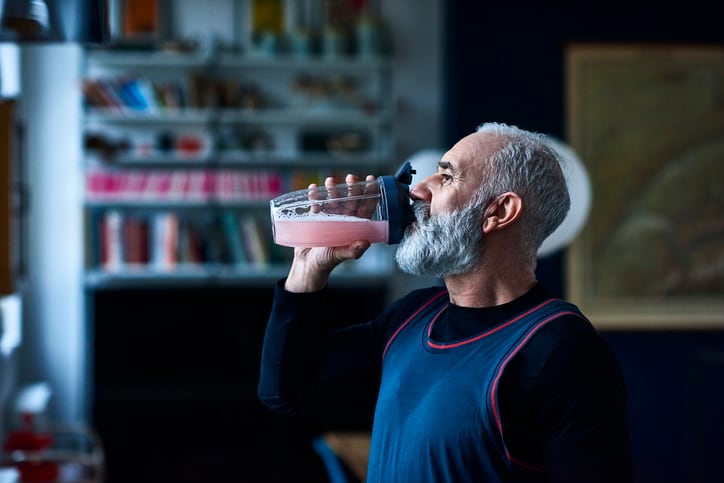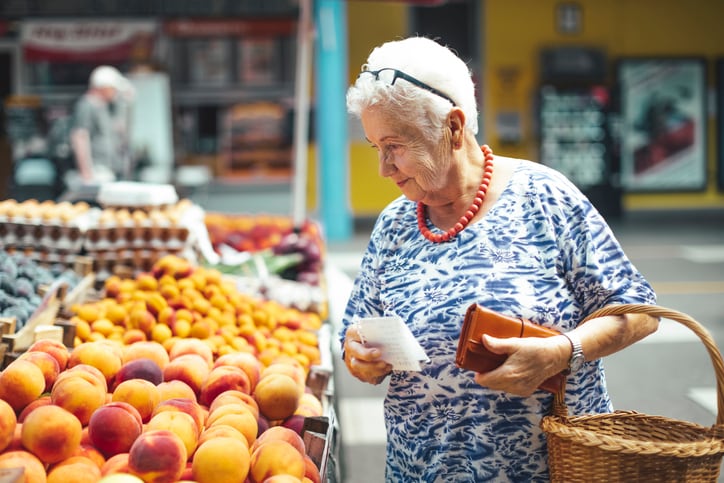UK shopper confidence again fell to record lows last month, according to IGD ShopperVista latest index. March’s Index score fell from -18 in February to -23.
Half of shoppers now expect food prices to be ‘much more expensive’ in the year ahead, a rise from 12% a year ago, according to the data. Confidence amongst 18-34-year-olds dropped fastest.
“Shoppers are rightly concerned about prices increasing and beginning to shift their focus to saving money,” said Rhian Thomas, Head of Shopper Insight at IGD ShopperVista.
“This will obviously have an effect on the way they shop, so it goes without saying that businesses should be focusing on their value proposition and how they can support shoppers during this period.”
Conventional wisdom suggests the cost of living crisis will push cash-strapped consumers towards cheaper, less healthy food.
But separate data from consumer research platform Attest highlights how food and beverage brands can take a bite out of the still-lucrative food and beverage wellness segment.
Its poll of 1,000 UK consumers, conducted in January, revealed over half (55%) were actively looking out for products to support their overall health. So much so, that people are also prepared to pay a premium for wellness ingredients. Some 53% said they will pay a ‘little’ bit more than for a standard product, while 14% will pay a ‘moderate’ amount more and 3% a ‘lot’.
Jeremy King, CEO and Founder of Attest, said: “This research was conducted as inflationary pressures were beginning to bite for consumers and encouragingly for brands, the data finds that more than half (55%) of shoppers are still actively looking out for F&B products to support their overall health. This clear, ongoing consumer demand is also supported by a willingness to stretch budgets, with 53% of people prepared to pay a ‘little’ bit more for premium wellness ingredients.
“These data points highlight a genuine opportunity for F&B brands to reach a significant number of British consumers with wellness-focused products that have premium price tags attached.”
Capitalising on health and wellness trends
‘Better immune health’ is the health benefit respondents would most like to get from F&B products (44%), added the Attest data, followed by better digestive health in third place (39%).
Wellness ingredients with the most pulling power among respondents were protein (58%), Omega-3 (48.5%) and pre/probiotics (32%). Protein was the ingredient most associated with better overall wellbeing and energy (47%). Omega-3 was linked most with brain health (41%), and pre/probiotics with digestive health (53%).
The products respondents most want to be fortified with wellness ingredients were cereals and cereal bars (39%), soups and smoothies (31%) dairy products 29% and bread and bakery (26%).
Clear nutrition labelling on-pack is the number one thing that brands can do to increase trust in their products (at 47%) across all age groups, King stressed. “Packaging and product messages aren’t helping shoppers nearly enough to make informed decisions. This is a clear call to action for the food and beverage industry to simplify how it sells its products. If the industry properly addresses this issue, it can unlock genuine consumer demand.”
Polarisation among shoppers means new strategies need to be forged
Data from NielsenIQ has further identified a new consumer economic divide amid rising inflation.
Over half of UK consumers (53%) claim that the cost of their normal weekly grocery shop has risen in the last six months, according to NielsenIQ latest Economic Divide study,
It identified five new consumer groups in the UK, each with different purchasing habits, needs and priorities.
These are:
Strugglers: This is 19% of Brits surveyed, these consumers experienced job or income loss and continue to do so today
Rebounders: Making up 22% of consumers, these shoppers experienced job or income loss during COVID-19, but are back on track now
Cautious: The most widespread (35%), these consumers did not see an impact on their household’s financial security during COVID-19, but are still cautious with spending habits
Unchanged: For 16% of Brits, there was no impact on their household's financial security and continued to spend as they normally did
Thrivers: Making up just 8% of consumers surveyed, they saved money during COVID-19 and feel more financially secure now than they did prior to the pandemic. Although 'thrivers' are the most financially secure, they too have noticed a climb in grocery spend (62%), despite purchasing the same items.
Rachel White, Managing Director, NielsenIQ UK and Ireland, said: “The last two years have seen an unprecedented level of uncertainty for consumers and the war in the Ukraine has only exacerbated sentiment about rising cost of living and inflation. In order to adapt to how consumers are reacting, retailers and manufacturers will need to forge new strategies and reinvent portfolios as they navigate these changing needs and priorities of a divided consumer landscape.”





